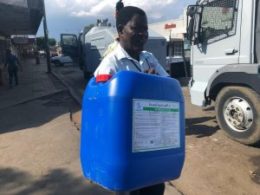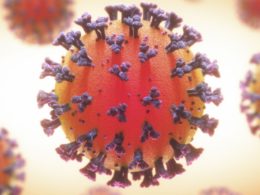The World Health Organisation (WHO) this Monday said the more dangerous and fast-spreading coronavirus variant, Delta, has reached at least 104 countries across the globe, further warning it will soon be the dominant Covid-19 strain circulating worldwide.
Extending Zimbabwe’s lockdown measures by a further two weeks, Tuesday evening, President Emmerson Mnangagwa also said 80 percent of Covid-19 cases being reported in the country were linked to the Delta strain.
WHAT IS DELTA VARIANT?
· Also known as B.1.617.2, the Delta variant, is a coronavirus strain that spreads more easily, according to the CDC.
· The Delta strain has mutations on the spike protein that make it easier for it to infect human cells.
· What that means is that people may be more contagious if they contract the virus and can more easily spread it to others.
WHAT ARE THE ORIGINS OF THE DELTA VARIANT?
· It was first identified in India in December 2020 and led to major outbreaks in that country.
· The variant then spread rapidly and is now reported in 104 countries, according to a CDC tracker.
HOW DOES IT SPREAD?
· According to estimates by public health experts, the average person who gets infected with Delta spreads it to three or four other people, as compared with one or two other people through the original coronavirus strain.
HOW DIFFERENT IS IT FROM OTHER VARIANTS
· Researchers have said that the Delta variant is about 50% more contagious than the Alpha variant, which was first identified in the U.K.
· Alpha, also known as B.1.1.7, was already 50% more contagious than the original coronavirus first identified in China in 2019.
WHAT ARE THE SYMPTOMS OF THE DELTA VARIANT?
· Delta variant symptoms are similar to those seen with the original coronavirus strain and other variants, including a persistent cough, headache, fever, and sore throat.
· Some Covid-19 patients in the UK have reported symptoms are slightly different for Delta, according to data from the ZOE Covid Symptom Study.
· Cough and loss of smell seem to be less common, according to that study while headache, sore throat, runny nose, and fever seem to be more common.
IS THE DELTA VARIANT MORE DEADLY?
· While scientists are still tracking the data to determine how deadly it is, hospitalisations in the UK indicate the Delta variant may lead to hospitalisation and death, particularly among unvaccinated people, according to a recent study published in The Lancet.
HOW MANY COUNTRIES HAS IT REACHED?
· More than 104 countries including the US, UK, Germany and many others.
HOW DOES IT REACT TO VACCINES?
· According to Public Health England, two doses of the Pfizer or Moderna vaccine appeared to be about 88% effective against disease and 96% effective against hospitalization with the Delta variant.
· The AstraZeneca vaccine was about 60% effective against disease and 93% effective against hospitalization while Johnson & Johnson has also reported efficacy from its one-shot vaccine against the Delta variant, which researchers estimate to be similar to the AstraZeneca results.
WHAT DOES THE DELTA VARIANT MEAN FOR THE UNVACCINATED?
· According to Yale Medicine people who have not been fully vaccinated against Covid-19 are most at risk.
· Communities with low vaccination rates in the US have seen a jump in cases.
· Children and younger adults who have not been vaccinated may be susceptible as well.
· In the U.K., children and unvaccinated adults under age 50 were 2.5 times more likely to become infected with Delta, according to a recent study published by Imperial College London.








